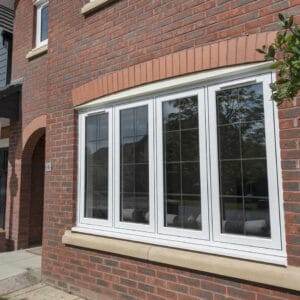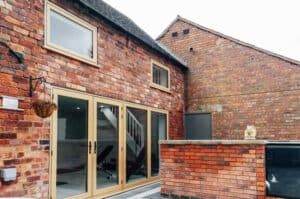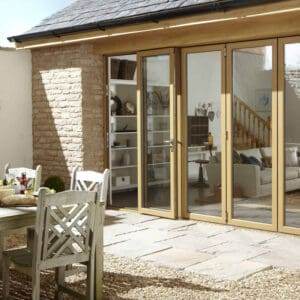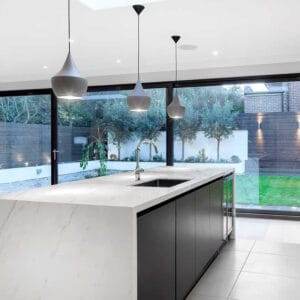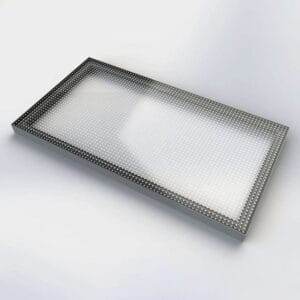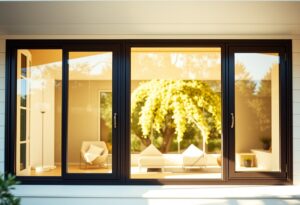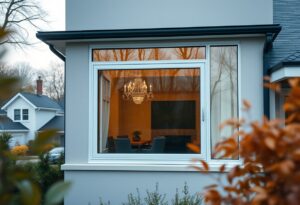Technology has evolved to offer innovative solutions in the battle against noise pollution, enhancing your living environment significantly. By investing in advanced window technologies, you can effectively minimise disruptive sounds from the outside world, leading to a more peaceful and comfortable home. These sophisticated windows not only improve acoustic performance but also provide energy efficiency, adding value to your property. Understanding these options can empower you to make informed choices that promote better living conditions, improving your overall well-being and quality of life.
Understanding Noise Pollution
Before delving into how advanced window technologies can mitigate this issue, it’s necessary to grasp the nature and implications of noise pollution. Noise pollution, an often-overlooked environmental hazard, refers to the excessive or harmful levels of sound that disrupt your daily life. As urban areas continue to grow, sources such as traffic, construction, and industrial activities increasingly contribute to pervasive noise, adversely affecting both your health and the environment.
Definition and Sources of Noise Pollution
Pollution from noise is commonly characterised by unwanted or harmful sounds that can disrupt your peace and tranquillity. The primary sources include traffic from vehicles, construction sites with heavy machinery, and various industrial operations. Prolonged exposure to such noise levels can lead to numerous health problems, including anxiety, impaired hearing, and stress-related disorders. Additionally, communities may experience environmental degradation due to the disturbances caused by continuous noise.
Health Effects of Noise Pollution
Across various studies, long-term exposure to high noise levels has been linked to serious health outcomes. You may experience increased levels of stress, difficulty in sleeping, and even cardiovascular diseases as a result of prolonged noise exposure. Findings illustrate a concerning connection between chronic noise pollution and your mental health, with higher risks of anxiety and depression reported in individuals living in noisy environments.
It is important to acknowledge that long-term exposure to noise can lead to significant health concerns, including persistent stress and serious cardiovascular issues. Moreover, research highlights links between noise pollution and mental health disorders, indicating that you may face an increased risk of anxiety and depression in noisy areas. Protecting yourself and your loved ones from excessive noise is paramount for maintaining both your physical and mental well-being.
Advanced Window Technologies Overview
Now, advanced window technologies are transforming how we tackle noise pollution in urban environments. These innovations enhance your living space by minimising external sound disruptions. Key features include:
- Double glazing for increased insulation
- Triple glazing for ultimate sound dampening
- Laminated glass that absorbs sound vibrations
- Specialised frame materials designed for soundproofing
- Acoustic seals that prevent sound leakage
For further information, discover how Window Replacements Help With Noise Pollution In Loud ….
Types of Noise-Reducing Windows
| Window Type | Noise Reduction Benefit |
|---|---|
| Double Glazing | Reduces sound transmission significantly |
| Triple Glazing | Provides enhanced insulation |
| Laminated Glass | Absorbs and dampens sound vibrations |
| Specialised Frame Materials | Minimises sound leakage |
| Acoustic Windows | Engineered specifically for soundproofing |
Features and Benefits of Modern Windows
By incorporating advanced technologies, modern windows offer key features, such as air gaps that enhance insulation and acoustic seals to block noise. These improvements not only reduce noise pollution but also contribute to energy efficiency and overall comfort in your home.
Consequently, the most important aspects of these features include advanced soundproofing techniques, which allow you to create a more peaceful environment. The danger of noise pollution impacting your health is diminished as you experience a quieter home. Positively, these enhancements result in lower energy costs while significantly improving your comfort levels. Any investment in modern window technologies will certainly pay dividends.
Installation and Maintenance Considerations
Clearly, when considering advanced window technologies for noise reduction, proper installation and maintenance are vital for achieving optimal performance. Professional installation typically ensures precise fitting and adherence to safety standards, thereby maximising the noise-dampening benefits. In contrast, a DIY approach can save costs but may lead to errors that compromise effectiveness and durability. (Ultimately, it’s about balancing your budget with long-term performance needs.)
Professional vs. DIY Installation
About whether to engage professionals or tackle the installation yourself, both options have their merits. Hiring professionals can guarantee a high-quality fit and compliance with building regulations, whereas DIY can be more budget-friendly and satisfying. However, improper installation can significantly diminish your noise reduction results. Assess your skill level and the complexity of the installation before deciding.
- Professional installation ensures a perfect fit
- DIY saves on costs but risks improper sealing
- Proper installation makes a significant difference in performance
- Consider your skills and tools before deciding
Maintenance Tips for Longevity
An effective way to maintain your noise-reducing windows involves a few practical tips to enhance their durability and function. Regularly clean the window surfaces and inspect sealants for wear and tear, as these factors can significantly impact performance. Ensure that you avoid harsh chemicals that could damage the materials, and address issues like condensation promptly.
- Clean surfaces regularly to avoid buildup
- Inspect sealants for signs of damage
- Avoid harsh chemicals that can harm materials
- Address condensation issues to prevent damage
Thou shalt uphold these maintenance practices to ensure that your windows not only look great but also provide maximum sound insulation.
Indeed, focusing on the longevity of your noise-reducing windows guarantees that you reap the benefits for years to come. Regular maintenance prevents minor issues from escalating into significant problems that can compromise both aesthetics and functionality. By leveraging the right techniques and being proactive about care, you can enjoy a serene indoor environment. Furthermore, investing in high-quality materials often pays off as they withstand the test of time better than cheaper alternatives.
- Regular maintenance preserves effectiveness
- Proactive care prevents costly repairs
- Quality materials ensure durability
- Mindful cleaning enhances performance
Thou should focus on these practices to prolong the lifespan and efficacy of your noise-reducing windows.
Cost Implications of Advanced Window Solutions
Not only do advanced window technologies provide substantial noise reduction, but their cost implications also warrant careful consideration. Here’s a breakdown to help you understand the financial aspects:
| Cost Factor | Description |
|---|---|
| Initial Installation | Upfront costs for advanced windows including materials and labour. |
| Maintenance Costs | Ongoing upkeep and potential repairs over time. |
| Energy Savings | Reductions in energy bills due to improved insulation. |
| Property Value Increase | Long-term investment returns through enhanced home value. |
Initial Investment vs. Long-Term Savings
On evaluating the installation of advanced window solutions, you’ll find a significant initial investment required. However, consider the potential long-term savings that arise from increased energy efficiency and higher property value over time. These factors can offset the initial costs and even lead to extra savings for your household. (Investing now could pay dividends later.)
Comparing Options and Budgeting
In comparing various noise-reduction window options, you should assess your budget and specific needs effectively. Each option presents unique features that might fulfil your requirements for both functionality and aesthetics. Look out for financing options or government incentives which can ease the financial burden of upgrades.
| Comparison Factor | Details |
|---|---|
| Window Types | Differences in materials, design, and noise reduction capabilities. |
| Project Costs | Estimate overall expenses including installation. |
| Financing Options | Potential loans or payment plans available. |
| Incentives | Government grants or subsidies available for energy-efficient upgrades. |
At the end of the day, the decisions you make regarding window installations can greatly affect your financial situation. By carefully weighing the various options and considering how they fit into your budget, you can make informed choices that not only enhance your living environment but also protect your financial interests. Your research should encompass product performance and long-term returns, ensuring you select solutions best suited to your needs.
Case Studies: Success Stories
All over the world, advanced window technologies have demonstrated their effectiveness in reducing noise pollution. Here are some notable case studies:
- Residential Project 1: 35% noise reduction measured in living spaces
- Residential Project 2: Over 50% reduction in street noise complaints
- Commercial Project 1: Office productivity increased by 20% after installation
- Commercial Project 2: Hotel guest satisfaction scores rose by 30% due to reduced noise
Residential Applications
Along several residential projects, advanced window technologies have significantly mitigated noise pollution. In one instance, a homeowner reported a 50% decrease in intrusive street sounds, leading to improved quality of life and sleep for their family. Testimonials indicate that after installation, residents feel more at peace in their homes. (Investing in such technologies ultimately enhances your living environment.)
Commercial Installations
Applications in commercial installations have also yielded remarkable results, necessary for both office environments and hospitality venues. Many office buildings reported enhanced focus and productivity among employees after implementing noise-reducing windows, while hotels noted a significant increase in positive reviews regarding guest comfort. (Prioritising soundproofing in your commercial space improves overall performance and customer satisfaction.)
To further your understanding of commercial installations, numerous studies highlight the direct correlation between sound reduction and employee efficiency. For instance, offices using advanced window technologies saw a documented 20% improvement in staff output. Additionally, hotels that invested in advanced glazing experienced a rise in customer retention rates, proving the positive business impact of soundproofing. (Choosing the right materials and technologies can transform your workspace.)
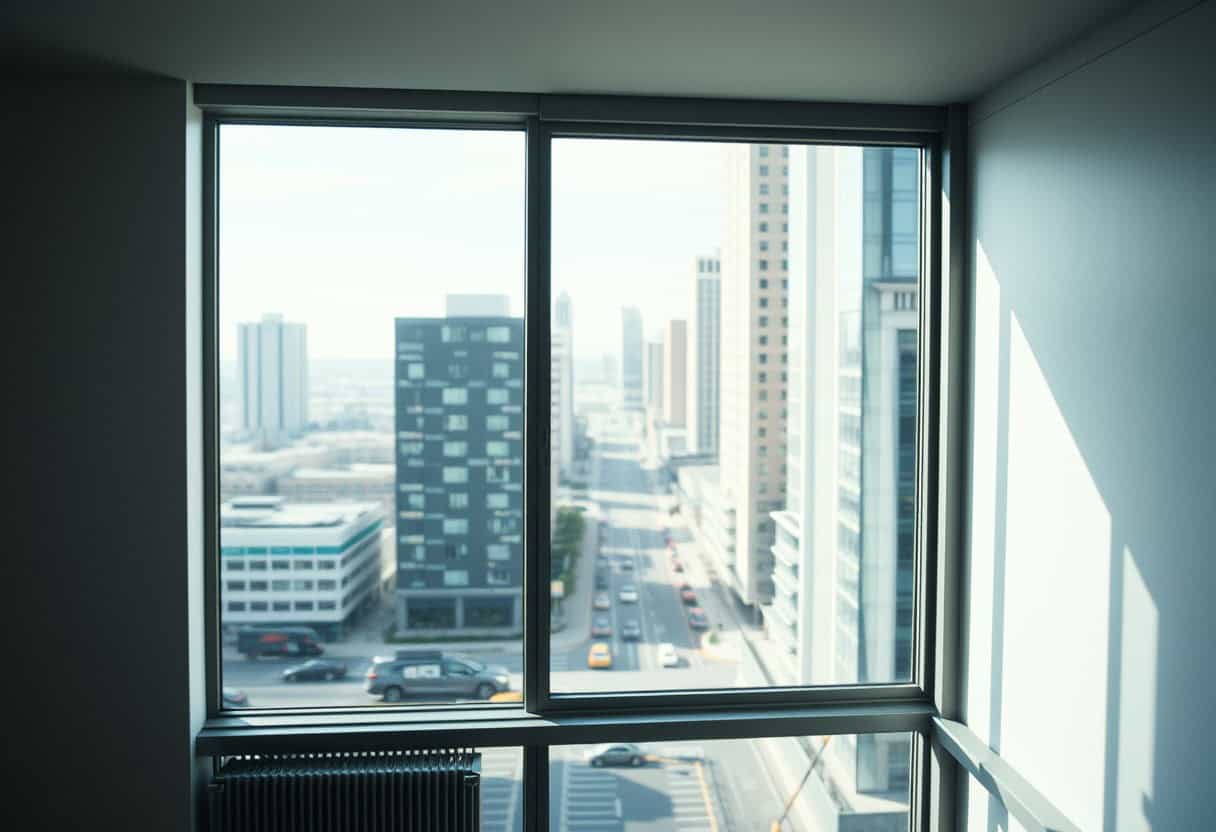
Future Trends in Window Technologies
Your home will benefit significantly from the latest trends in window technologies. Innovations are driving the development of smarter, more efficient windows that not only improve aesthetics but also reduce noise pollution. As manufacturers explore novel materials and designs, you can look forward to enhanced acoustic performance, creating a more serene living environment.
Innovations in Soundproofing Materials
With the emergence of soundproofing materials, innovations such as smart glass are revolutionising noise control. This technology can adapt to different decibel levels, providing enhanced sound insulation when needed. As these materials become more accessible and affordable, your ability to create a tranquil indoor space is set to improve dramatically.
Integrating Smart Home Solutions
Alongside advancements in window technology, integrating smart home solutions can elevate your sound reduction capabilities. By connecting window systems to your home automation setup, you can optimise soundproofing according to your daily routines. This integration ensures you enjoy a quieter atmosphere when you need it most, making a significant impact on your overall living experience (investing in a smart home system can greatly enhance comfort and convenience).
Home automation not only enhances the performance of your windows but also acts as a compliment to your lifestyle. By using sensors that detect ambient noise levels, your smart windows can adjust accordingly, such as changing their opacity for better sound insulation. This integration allows for a highly personalised environment while reducing distractions from the outside world (considering how you wish to balance comfort and energy efficiency is vital when making these decisions).
Summing up
Drawing together the insights on reducing noise pollution with advanced window technologies, you can significantly enhance your living environment. By investing in high-performance windows, you will not only improve your comfort but also contribute to a quieter neighbourhood. Exploring options that offer sound insulation can lead to substantial benefits for your mental well-being and overall quality of life. For more information on soundproofing solutions, visit DeNoize: Homepage to discover effective strategies tailored to your needs.
FAQ
Q: What is noise pollution and why is it a concern?
A: Noise pollution refers to unwanted or harmful levels of noise in the environment, often resulting from urban activities, traffic, construction, and industrial operations. It can lead to various health issues, including stress, sleep disturbances, and hearing loss, making it an important concern for residents, especially in densely populated areas.
Q: How can advanced window technologies help in reducing noise pollution?
A: Advanced window technologies, such as double or triple glazing and sound-absorbing frames, significantly reduce external noise levels. These windows are designed to create a barrier against sound waves, thereby improving acoustic insulation and enhancing the overall comfort within buildings.
Q: What are double-glazed windows and how do they work?
A: Double-glazed windows consist of two glass panes separated by a gap filled with air or an inert gas like argon. This design not only provides thermal insulation but also reduces noise transfer, as sound waves must pass through two layers of glass, which diminishes their intensity before reaching the interior space.
Q: Are there specific materials that enhance the soundproofing capabilities of windows?
A: Yes, materials like laminated glass are particularly effective for sound reduction. Laminated glass incorporates a layer of polyvinyl butyral (PVB) between two sheets of glass, which dampens sound vibrations and improves noise insulation. Additionally, soundproof window frames made from materials such as vinyl or fibreglass can also contribute to better acoustic performance.
Q: Can the installation of advanced windows significantly lower noise levels in my home?
A: Yes, installing advanced window technologies can substantially lower noise levels within your home. Many homeowners report a noticeable difference in sound levels after upgrading their windows, leading to a quieter and more peaceful living environment.
Q: What factors should I consider when choosing windows for noise reduction?
A: When identifying windows for noise reduction, consider factors such as the thickness of the glass, the internal gas fill (if applicable), frame material, and the overall window design. Consulting with professionals can help ensure you choose the right combination of features that best addresses your specific noise issues.
Q: Are there additional measures I can take alongside advanced windows to further reduce noise pollution?
A: Absolutely. In addition to advanced windows, consider adding heavy curtains or acoustic panels, sealing gaps around windows and doors, and providing insulation in walls and ceilings. These combined efforts can significantly enhance your noise reduction strategy and improve your overall living conditions.

